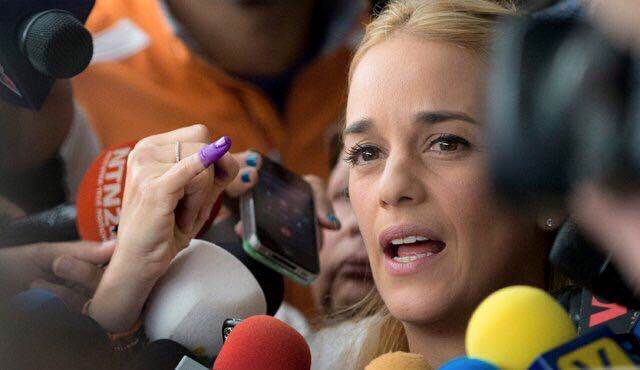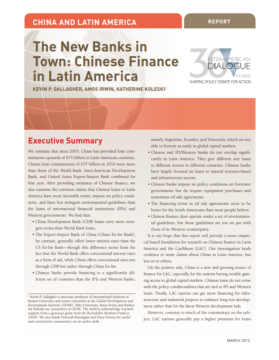Hugo Stay Home
Hugo Chavez, the Venezuelan president, has clearly been enticed by the Libyan drama, where his longtime friend and ally, Muammar al-Qaddafi, is under siege from rebel forces.
On December 6th, Venezuelans will go to the polls to elect a new National Assembly at a pivotal moment in the country’s history. The question of transparency and fairness will be paramount for both the political stability of Venezuela and the rest of Latin America and the Caribbean.
On November 19, 2015, the Inter-American Dialogue, the Latin America Initiative at the Brookings Institution, the Latin America Program of the Woodrow Wilson Center, International IDEA, and Universidad Catolica Andres Bello hosted Benigno Alarcón and Torquato Jardim to discuss the findings of a new International IDEA and Universidad Catolica Andres Bello report on technical aspects of Venezuela's electoral system. Cynthia Arnson from the Wilson Center and Harold Trinkunas from Brookings moderated the event, with opening remarks from Kevin Casas-Zamora from the Dialogue and a closing statement by Daniel Zovatto from International IDEA.
The discussion began by recognizing the importance of the December elections in Venezuela. Benigno Alarcón highlighted the importance of the circumstances for these particular elections. Distorted representation makes the political process in the legislature much more complicated. Furthermore, both the National Electoral Council and the electoral system in place face a legitimacy crisis among Venezuelan voters. The report shows that in 2015, 72% of Venezuelans do not trust the electoral system.
Alarcón also commented on the current context of political confrontation in Venezuela. The government’s party, the PSUV, is pushing for “re-polarization” while the opposition looks for broader support from their constituencies. In Venezuela, there is also an overall discontent with the public policies of Nicolás Maduro’s administration. This public discontent comes alongside a difficult economic outlook, which may trigger political disruption in the near future. There is also a possibility of violence following the elections since the opposition expects a victory while the government rejects any possibility of defeat.
Torquato Jardim argued that Venezuela today is a “de-facto one party” system. The current government controls the national courts, which has led to an absence of rule of law and further impunity in the political campaign. For Jardim, there are no legal limits for what the majority party can do inside the National Assembly, the national courts, and the National Electoral Council.
In addition, the speakers commented on the adequacy of the electoral accompaniment mission appointed by the Union de Naciones Sudamericanas (UNASUR). This is the only international observation mission in place at this time. Daniel Zovatto explained the mission’s inadequacies by reading the content of the Memorandum of Agreement between Venezuela and UNASUR, highlighting how its mandates and objective are abstract and the role of the mission is greatly diminished. Moreover, the agreement states that the mission will only accompany the Venezuelan authorities and present observations after the election occurs. No previous considerations will be received by Venezuela on this matter. For Zovatto, the mission has an “anemic” mandate, which will risk the process and credibility of the mission in both the country and the region.
The report presents the different strengths and weaknesses of the Venezuelan electoral system. It highlights Venezuela’s automatized electoral system as one of its main strengths, and presents several weaknesses, such as the citizens’ lack of trust on the secrecy of the vote and the negative repercussions of the state of emergency in several states, among others. Moreover, the report follows one specific mantra: “If there is a will for change, there is time for change.” In that sense, the report issues specific recommendations to ensure minimal guarantees of due process in the Venezuelan elections. These recommendations range from avoiding the “ventajismo” or the tendency to privilege only the majority party as well as engaging in public campaigns to restore the people’s confidence in the electoral system, reaffirm the secrecy of the vote, and present more information about the process in order to elude confusion.
Hugo Chavez, the Venezuelan president, has clearly been enticed by the Libyan drama, where his longtime friend and ally, Muammar al-Qaddafi, is under siege from rebel forces.
Estimates of the volume, composition, and characteristics of Chinese lending to the region since 2005.
Is the Venezuelan government likely to comply with the IACHR’s ruling or will it uphold the ban?

